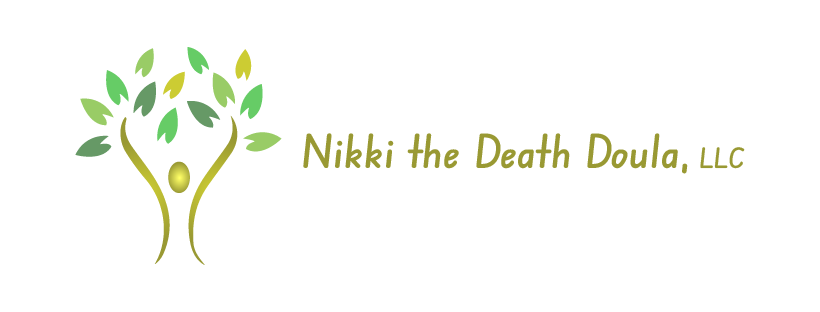Your Grandmother Was Right: Death Is Inevitable, But We Can Still Do It Better
Your grandmother probably had a lot of opinions. Some questionable (like the ol’ tissue up the sleeve thing), and some that hit you right in the soul. Like when she’d wave a hand at the sky and say, “Well honey, we all go sometime.”
She wasn’t wrong.
Death is inevitable. You, me, that guy with the leaf blower who starts at 7:00 a.m. on Saturdays, we’re all going to die. And while most of us would prefer to avoid the topic entirely, pretending we can outwit mortality with supplements, green juice, and a well-filtered Instagram feed, Grandma didn’t play that game. She looked it square in the face.
But here’s the thing: inevitability doesn’t have to be messy. We can’t dodge death, but we sure as hell can do it better.
Death Isn’t the Problem. It's Avoidance.
We’ve built a culture that talks around death like it’s a shameful secret. We whisper it. We cover it in euphemisms. We say "passed away," "gone to a better place," or "no longer with us," as if the real word might conjure it into the room.
But death already is in the room. It always has been.
It’s in the aging dog curled at your feet. It’s in the wilted flowers on the table. It’s in all the new aches and pains I seem to keep developing.
When we avoid talking about death, we don’t make it go away, we just make it harder. We leave families floundering in the wake of “I don’t know what they would’ve wanted.” We let fear fill the silence instead of love, planning, and meaning.
We deserve better than that.
A Better Death Isn’t Perfect, It’s Present
Doing death better doesn’t mean it’s clean or tidy, or even predictable. There will still be snotty tears and grief that wraps around you like a vice. It doesn’t mean you’ll feel “ready,” or that loss won’t gut you. But it does mean that we can show up more fully. For ourselves and for each other.
A better death means:
Talking to the people you love about what matters most to you.
Having the awkward conversations now so they’re not impossible later.
Making choices ahead of time about your care, your stuff, your legacy (and yes, even your funeral playlist). Ahem.
It means allowing death to be part of life, not some dark secret we shove in the attic.
A better death might look like being surrounded by familiar voices, favorite music, and the smell of soup on the stove. It might mean writing letters to your people or letting them write theirs to you. It might mean dying alone, or it might mean choosing medical options with intention, but always, always with clarity and care.
Grandma Was Also Right About the Cake
While we’re on the subject, let’s not forget another gem from grandma: “Life’s short, eat the cake.”
She meant joy. She meant presence. She meant don’t wait for some perfect time that may never come. And that’s part of doing death better, too.
Because acknowledging death doesn’t make life less vibrant. It makes it more vivid.
We start saying the things we’ve held in our mouths for too long. We take the trip. We forgive ourselves. We gather around the table. When we know our time is finite, we stop wasting it on things that don’t matter.
Let me repeat that: WHEN WE KNOW OUR TIME IS FINITE WE STOP WASTING IT.
Let’s Make This Easier on the Living
And maybe most practically doing death better means doing right by the people we leave behind.
Leave them something besides a mess. Leave them a plan. Leave them permission to grieve in their own weird, beautiful way. Leave them with stories you told and stories you wrote down.
Don’t make them become private investigators trying to decode your will, your passwords, or whether you wanted to be composted or turned into a firework.
(Yes, those are real options. And yes, Grandma would’ve had thoughts.)
So Here’s the Invitation
Let’s stop whispering. Let’s start preparing. Let’s remember that facing death doesn’t kill the joy, it multiplies it.
Your grandmother was right: death is inevitable.
But we? We can still do it better.
A Question to Ponder:
What’s one small, meaningful step you could take today to prepare for a better death. For you, or for someone you love?
